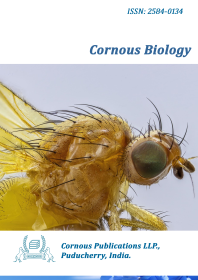

When it comes to solving the interconnected problems of global nutrition and food security, horticulture is essential. Horticulture provides sustainable ways to increase food production while encouraging a varied and nutrient-rich diet in light of the world's expanding population and mounting demand on agricultural resources. Horticulture improves dietary diversity and fights malnutrition by increasing the availability of nutrient-dense food through the production of fruits, vegetables, herbs, and decorative plants. Horticulture's adaptation to many climatic circumstances is one of its main advantages. Horticultural approaches, which range from big commercial farms to little backyard gardens, may be customized to fit local conditions, enabling communities to grow their own food and lowering their need on imported items. In addition to improving food security, this decentralization of food production increases resilience against outside shocks like market volatility and climate change. Horticulture provides a wide variety of nutrient-dense crops that are necessary for a balanced diet, which helps to solve the problems associated with global nutrition. Antioxidants, vitamins, and minerals found in abundance in fruits and vegetables are essential for avoiding chronic illnesses and micronutrient shortages. Furthermore, horticulture commodities may be turned into value-added goods like jams, juices, and dried fruits, which will increase their year-round accessibility and shelf life.
food security, horticulture, global nutrition, nutrition challenges, nutrient-rich crops
Akanmu, A. O., Akol, A. M., Ndolo, D. O., Kutu, F. R., & Babalola, O. O. (2023). Agroecological techniques: Adoption of safe and sustainable agricultural practices among the smallholder farmers in Africa. Frontiers in Sustainable Food Systems, 7. https://www.frontiersin.org/articles/10.3389/fsufs.2023.1143061
Chen, T., Xing, J., El-Mogy, M., & Wang, Y. (2022). Editorial: Nutritional quality formation and maintenance of horticultural crops. Frontiers in Plant Science, 13, 1005338. https://doi.org/10.3389/fpls.2022.1005338
Climate-Smart Gardening – New Jersey Climate Change Resource Center. (n.d.). Retrieved January 29, 2024, from https://njclimateresourcecenter.rutgers.edu/climate_change_101/climate-smart-gardening/
Congreves, K. A. (2022a). Urban horticulture for sustainable food systems. Frontiers in Sustainable Food Systems, 6. https://www.frontiersin.org/articles/10.3389/fsufs.2022.974146
Congreves, K. A. (2022b). Urban horticulture for sustainable food systems. Frontiers in Sustainable Food Systems, 6. https://www.frontiersin.org/articles/10.3389/fsufs.2022.974146
Dawson, B. (2018, January 2). Importance of horticulture | Feed the Future Innovation Lab for Horticulture. https://horticulture.ucdavis.edu/horticulture-overview
Food security and nutrition and sustainable agriculture | Department of Economic and Social Affairs. (n.d.). Retrieved from https://sdgs.un.org/topics/food-security-and-nutrition-and-sustainable-agriculture
Innovations in horticulture to look out for in 2022 and beyond part 1. (n.d.-a). Retrieved from https://www.grodan.com/our-thinking/grodan-blogs/innovations-in-horticulture-to-look-out-for-in-2022-and-beyond-part-1/
Innovations in horticulture to look out for in 2022 and beyond part 1. (n.d.-b). Retrieved January 29, 2024, from https://www.grodan.com/our-thinking/grodan-blogs/innovations-in-horticulture-to-look-out-for-in-2022-and-beyond-part-1/
Kathi, S., Laza, H., Singh, S., Thompson, L., Li, W., & Simpson, C. (2024a). A decade of improving nutritional quality of horticultural crops agronomically (2012−2022): A systematic literature review. Science of the Total Environment, 911, 168665. https://doi.org/10.1016/j.scitotenv.2023.168665
Kathi, S., Laza, H., Singh, S., Thompson, L., Li, W., & Simpson, C. (2023). A decade of improving nutritional quality of horticultural crops agronomically (2012− 2022): A systematic literature review. Science of the Total Environment, 168665. https://doi.org/10.1016/j.scitotenv.2023.168665
McCauley, D. J. (2021, January 25). Urban Agriculture Combats Food Insecurity, Builds Community. Eos. http://eos.org/articles/urban-agriculture-combats-food-insecurity-builds-community
Partnerships for Climate-Smart Commodities | USDA. (n.d.). Retrieved January 29, 2024, from https://www.usda.gov/climate-solutions/climate-smart-commodities
Sustainable Gardening. (n.d.). Retrieved from https://www.missouribotanicalgarden.org/gardens-gardening/your-garden/help-for-the-home-gardener/sustainable-gardening
UNicef. (2023). The state of food security and nutrition in the world 2023: urbanization, agrifood systems, transformation and healthy diets across the rural-urban continuum.
Urban Horticulture for Food Security. (n.d.). Retrieved from https://encyclopedia.pub/entry/3342
